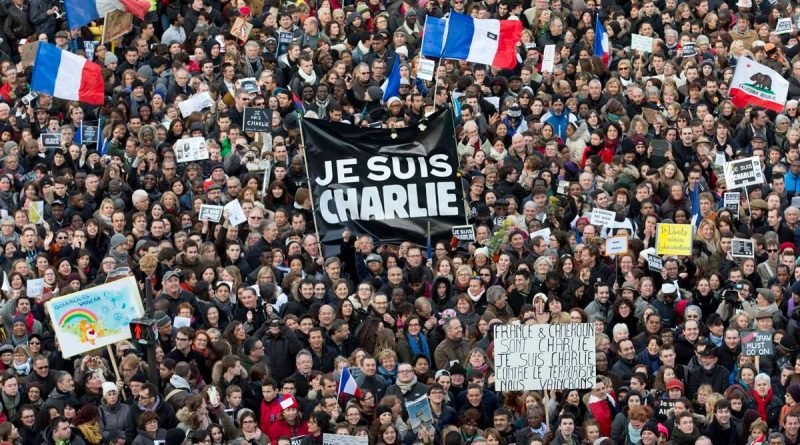Reopening one of the most painful chapters in French history: Charlie Hebdo trials

7th January 2015. A series of terrorist attacks in Paris which began in the offices of the satirical magazine of Charlie Hebdo ended at a Kosher supermarket two days later. In this attack by the Islamic militants that was triggered by an illustration on Prophet Mohammad that appeared in the magazine, almost 17 people died with 11 of them being journalists and security personnel. The brutal attack sent shockwaves around the world as millions of people from France as well across the globe took out solidarity marchers, united under the slogan, “Je Suis Charlie”.
Last week fourteen people started the already delayed trial, because of the Pandemic, over the terrorist attack. Three are being tried in Absentia, while the rest in Paris. They are being charged on being an accomplice to the Islamist militants who were behind the whole ordeal. They are charged with providing the attackers with required ammunition and the logistic support and the subsequent attacks that happened on a patrolling police officer and supermarket. In the trial which is expected to run till November, there are about 200 plaintiffs and numerous survivors ready to testify.

When Corrine Rey, also known as Coco, a cartoonist who let the gunmen inside the headquarters, testified in the court on Wednesday, she claimed on being ridden with traumatising feelings of guilt. She had gone outside to smoke a cigarette when Said Kouachi approached her and forced her with a Kalashnikov rifle to punch the entry code for them to enter the building. “I had a sense of dread,” she said, her voice shaking with emotion. “I was in distress, I could not think anymore,” she told the trial. Being among the most celebrated cartoonists, Jean Cabut, known as Cabu, 76, Georges Wolinski, 80, and Stephane “Charb” Charbonnier, 47, all lost their lives in the massacre while Laurent Sourisseau, known as Riss, was shot and wounded but survived. He is now Charlie Hebdo’s director. To this Corrine Rey said, “This is the talent that was killed that day, they were models for me,” Rey said. “They were extremely kind people, who had a talent for being funny … It’s not easy to be funny, but they were able to do it very well.”
Before the most painful chapter of France’s History was reopened for trials, Charlie Hebdo, on 1st September republished the controversial cartoon of Prophet Mohammed, making a statement for Freedom of Speech which angered the states of Pakistan, Chechnya, Yemen, France, Nigeria, Indonesia, Iran and Turkey, where people protested against it. Pakistan’s foreign ministry also condemned the move and tweeted, “#Pakistan condemns in the strongest terms the decision by the French magazine, Charlie Hebdo, to re-publish deeply offensive caricature of the Holy Prophet Muhammad (PBUH)”. There was an especially huge anti-France rally in Pakistan lead by the hardline Tehreek-e-Labbaik Pakistan party. It was also tweeted by the Foreign Ministry of Pakistan to be a deliberate attack on the sentiments of Muslims. In the editorial of the issue which republished the cartoons, Charlie Hebdo magazine stated that these cartoons were etched in history can neither be erased nor rewritten. “It was unacceptable for us to approach this trial without showing the pieces of evidence to readers and citizens. Not republishing the caricatures would have amounted to ‘political or journalistic cowardice’,” it noted.

According to Emmanuel Macron, the French president, the right to mock and caricature, even religion, is an essential right of being French. He said that as a citizen of France, you get to enjoy the institution of democracy and with it, the freedom of speech. “It’s never the place of a president of the Republic to pass judgment on the editorial choice of a journalist or newsroom, never. Because we have freedom of the press.” “There is in France freedom to blaspheme which is attached to the freedom of conscience. I am here to protect all these freedoms. In France, one can criticize a president, governors, blaspheme,” he said. During his visit of Lebanon, he encouraged the citizens of France to avoid the “dialogue of hate” and respect each other and has refused to criticize the Charlie Hebdo’s republishing of the cartoons right before the trial.



















